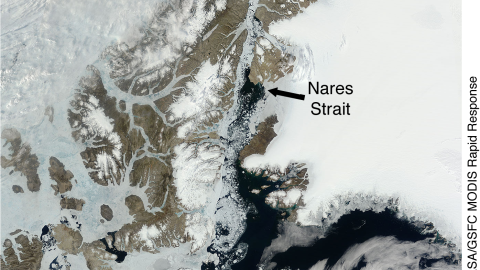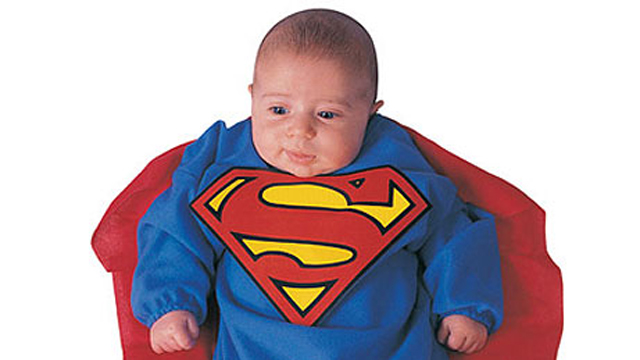Greenland Glacier Sheds Massive Ice Island

It’s been over four decades since Greenland lost an ice chunk like the one “born” last week. The ice island – four times the size of Manhattan – calved off of northern Greenland’s Petermann glacier on August 5th. At its thickest parts, the ice island is half the height (excuse all the NYC-centric comparisons) of the Empire State building. A loss at that scale hasn’t occurred since 1962. One immediate danger is that the glacial rupture will pave the way for currents to strengthen in the area, leading to increased rupture rates: a vicious cycle.
Andreas Muenchow, a glaciologist at the University of Delaware, studies the Nares Strait, and gained practically real-time access to NASA’s data on the event. He expects the mass to “follow along the coasts of Baffin Island and Labrador, to reach the Atlantic within the next two years.”
If the ocean is a glass of water, that’s one heck of an ice cube to drop in. And the freshwater stored in that ice cube, says Muenchow, “could keep the Delaware or Hudson rivers flowing for more than two years,” or “keep all U.S. public tap water flowing for 120 days.”
Despite the epic proportions of the glacial event, Muenchow warns environmentalists not to jump the gun and point to climate change as a cause, before hard data can support that assertion. “Global warming and climate change are very real and challenging problems,” Meunchow said, “but it is foolish to assign every ‘visible’ event to that catch-all phrase. It cheapens and discredits those findings where global warming is a real and immediate cause for observable phenomena. Details matter, in science as well as in policy.”





